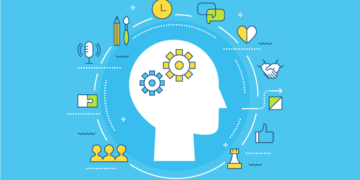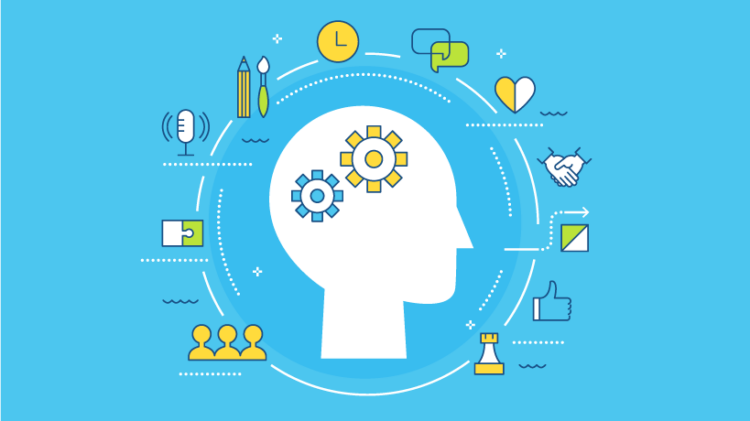Soft skills are invaluable traits that enable you to collaborate effectively with others, advance your career, and manage your finances efficiently.
Think of these skills as the invisible tools that empower you to thrive in a fast-paced world. In 2025, as the global landscape continues to evolve, mastering these abilities can set you apart in the job market and enhance your personal life.
Top 5 Soft Skills You Need to Succeed in 2025
If you’re aiming for a career change, financial growth, or simply self-improvement, here are top 5 soft skills you need to succeed in 2025:
1. Effective communication
The ability to express your ideas clearly and listen actively is a cornerstone of personal and professional success. Good communication fosters teamwork, builds relationships, and ensures that your ideas resonate with others.
How to enhance this skill:
- Practice active listening: Focus on understanding the speaker without formulating your response prematurely.
- Learn nonverbal cues: Mastering body language, facial expressions, and tone of voice can amplify your message.
- Refine public speaking: Join groups like Toastmasters or take online courses to polish your presentation skills.
- Write regularly: Clear written communication is just as important as verbal. Journaling, blogging, or professional writing can improve this aspect.
2. Emotional intelligence (EI)
Emotional intelligence is the ability to recognize, understand, and manage both your emotions and those of others. High EI can improve relationships, reduce stress, and enhance decision-making, especially in high-pressure situations.
How to build emotional intelligence:
- Self-awareness: Reflect on your emotions and triggers through journaling or mindfulness practices.
- Empathy development: Try to view situations from others’ perspectives to strengthen your interpersonal connections.
- Conflict resolution: Practice staying calm and solution-focused during disagreements.
- Seek feedback: Ask trusted colleagues or friends for honest input on your emotional responses and adaptability.
3. Time management
Time is one of your most valuable resources. Effective time management allows you to accomplish more, reduce stress, and seize opportunities. It’s a skill that separates those who thrive under pressure from those who struggle to keep up.
Steps to master time management:
- Prioritize tasks: Use frameworks like the Eisenhower Matrix to determine which tasks are urgent and important.
- Set clear goals: Define daily, weekly, and long-term objectives to maintain focus.
- Leverage technology: Apps like Trello, Asana, or Google Calendar can help you organize and track your time.
- Adopt time-blocking: Allocate specific hours to tasks and stick to them.
4. Networking and relationship building
Networking isn’t just about collecting business cards—it’s about forming meaningful relationships that can support your career and personal growth. Strong networks open doors to opportunities, mentorship, and collaboration.
Ways to improve networking skills:
- Be authentic: Build connections based on mutual interests and trust rather than solely seeking benefits.
- Engage actively: Attend industry events, join professional groups, or participate in online communities.
- Offer value: Provide help, advice, or resources before expecting anything in return.
- Stay connected: Regularly follow up with your contacts through emails, calls, or social media interactions.
5. Financial literacy and negotiation skills
Understanding how money works and how to negotiate effectively can significantly impact your financial well-being. Financial literacy enables you to budget, save, invest, and avoid unnecessary debt. Meanwhile, negotiation skills empower you to secure better salaries, contracts, and deals.
Steps to improve financial literacy:
- Educate yourself: Read books like Rich Dad Poor Dad or take online courses on personal finance.
- Track expenses: Use tools like Mint or YNAB to monitor your spending and identify areas for improvement.
- Invest wisely: Learn about different investment options and create a diversified portfolio.
- Learn negotiation techniques: Study methods like BATNA (Best Alternative to a Negotiated Agreement) and practice role-playing scenarios to refine your approach.
Why These Skills Matter in 2025
The workplace and economy are becoming increasingly dynamic, driven by technological advancements and shifting societal norms. Employers value individuals who possess strong interpersonal abilities, adaptability, and financial acumen. Additionally, these skills can lead to personal empowerment, helping you navigate challenges, seize opportunities, and achieve your goals.
Conclusion
Investing in these soft skills is one of the best decisions you can make in 2025. Not only will they boost your career prospects, but they will also improve your personal life, allowing you to communicate better, manage time effectively, and make informed financial decisions. Remember, these skills are not innate—they can be learned and developed with consistent effort and practice.






































Discussion about this post